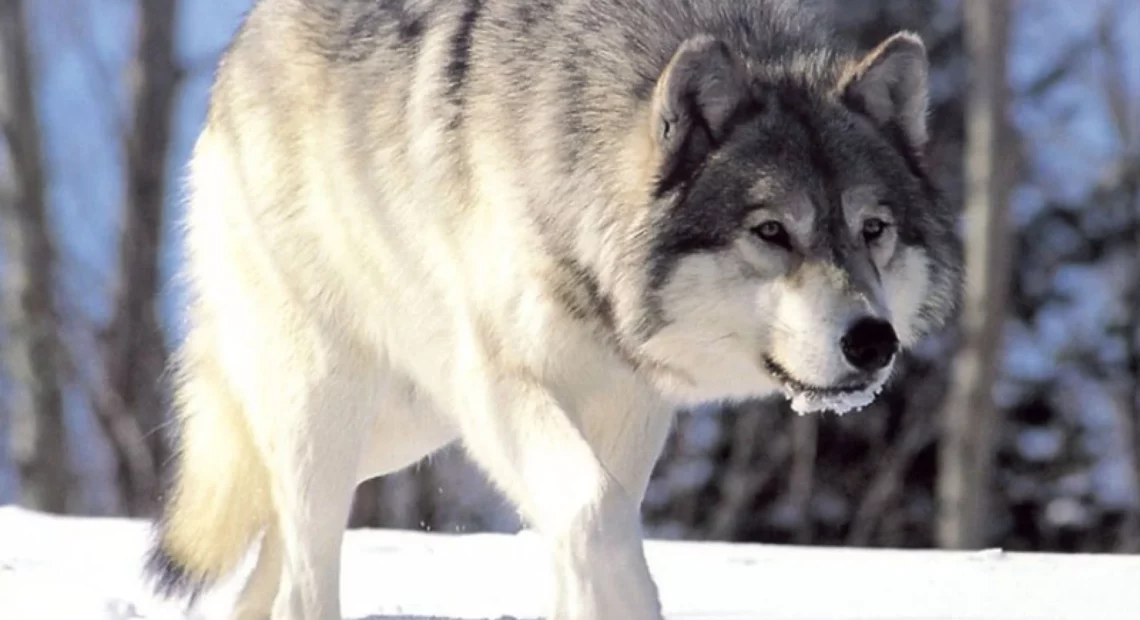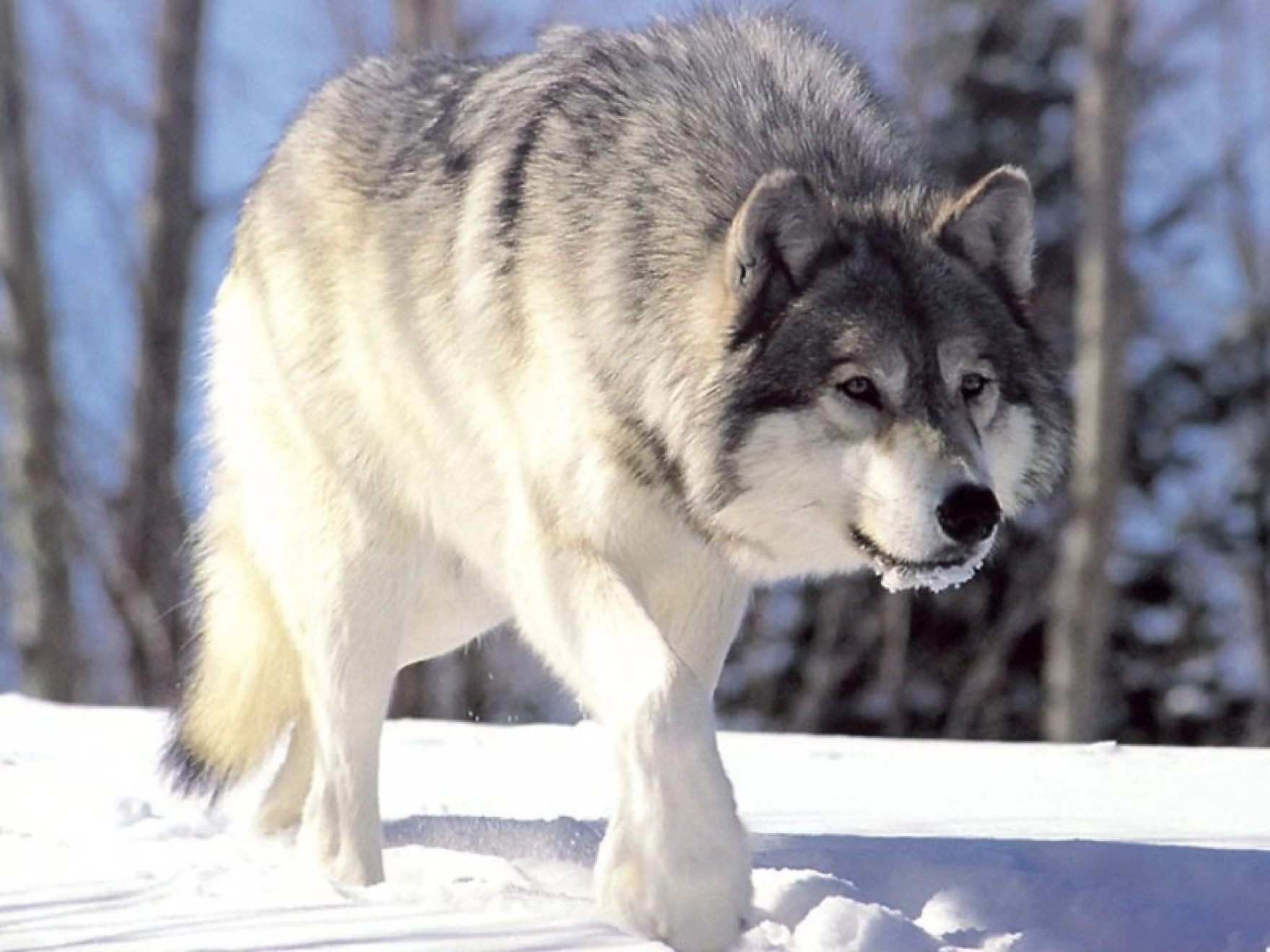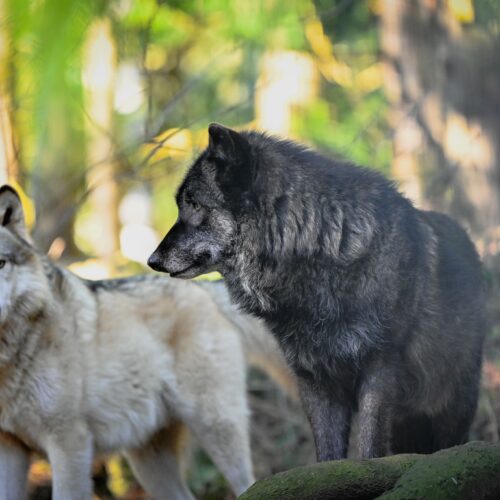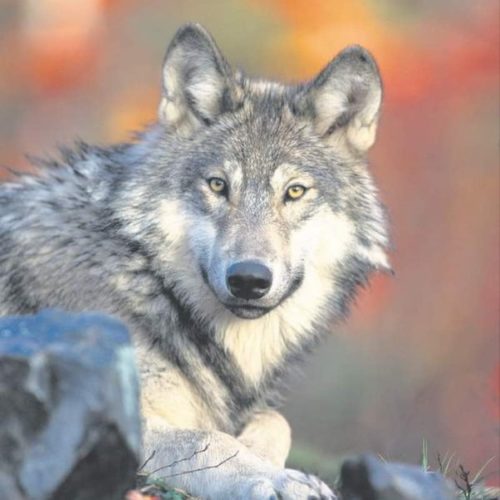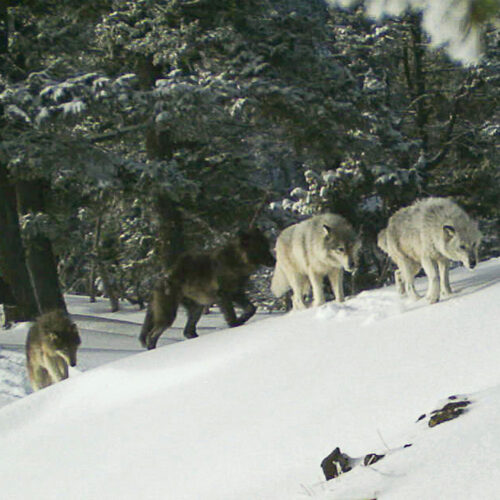Wildlife officials Monday confirmed the deaths of six wolves in northeastern Washington was due to poison.
“This unfortunate incident involving the death of six wolves is being investigated and being taken extremely seriously due to the nature of the crime, the extent of the animals that were poached,” said Becky Elder, Washington State Fish and Wildlife Police communications consultant.
In February, Stevens County deputies found four dead wolves while on a snowmobile patrol, according to an incident report.
The deputies initially thought the first wolf they found had died of old age but noticed no blood or bullet holes when they found three other wolves later in the day, according to the incident report. The wolves appeared to have died weeks prior to their discovery, and the deputies couldn’t find any recent snowmobile tracks.
The deputies reported the incident to Fish and Wildlife officials, who said the department has been investigating the poaching for the past seven months.
During a search of the area over the following month, investigators found two additional dead wolves.
Toxicology reports revealed they’d been poisoned.
Wildlife advocacy groups had asked the department to acknowledge the poisonings in May. So far, eight groups have offered $51,100 for information that leads to a conviction in the case.
“These communities where this happens tend to be quite small, tight-knit communities, so there’s a likelihood that somebody who was not involved might know who did this,” said Sophia Ressler, a staff attorney with the Center for Biological Diversity, an advocacy group.
In Washington, wolves are considered endangered under the state Endangered Species Act. Wolves in the western two-thirds of the state are protected by the federal Endangered Species Act.
Under state law, illegally killing a wolf is considered a gross misdemeanor, which could include up to a year in jail and up to a $5,000 fine.
It’s possible, but unknown, Ressler said, that the Washington wolf poisonings are somehow connected to the 2021 poisoning of eight wolves in eastern Oregon, which included five members of an entire wolf pack. Later, three more wolves were found. Investigators also found a skunk and two magpies.
Testing showed a different type of poison was used on one of the wolves found after the initial incident that killed the wolf pack, according to a news release from the Oregon State Police.
Oregon’s lengthy investigation into the wolf poisonings stalled in December 2021, so officials asked for the public’s help in catching the poachers.
Washington wildlife officials said any speculation as to whether the two severe poaching cases are related is pending investigation. While the manner that the wolves died is similar, geographically the deaths are spread far apart, Elder said.
While wolf poaching does occasionally occur, it’s usually one animal killed, Elder said, which is why the poisoning of six wolves has a higher impact. However, the state’s wolf population hasn’t been negatively affected by this incident and continues to rebound, she said.
Ressler said while all types of poaching are abhorrent, poisoning seems especially cruel.
“Not only did wolves end up ingesting that poison, but when poison is left on the land, people’s pets can eat it. Other wildlife can eat it. That kind of poaching targets not just the animal that it’s intended to,” Ressler said.
In Washington, the 2021 annual wolf survey showed at least 206 known wolves in 33 known packs, including at least 19 breeding pairs.
Fish and Wildlife officials say to confidentially report information, one can call the department’s poaching hotline, 877-933-9847, or text a tip to 847411.

